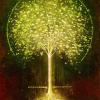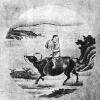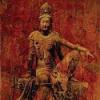Search the Community
Showing results for 'Dream'.
Found 7,591 results
-

Experience, Realization, View, Practice and Fruition
Jetsun replied to xabir2005's topic in Buddhist Discussion
Yes it is possible if you take this stuff too far you can end up in a state which the Buddha called "falling into the pit of the void" which can lead to a pathological state called Depersonalization where you see the world as completely unreal and a dream, but instead of freeing you it cuts you off from your emotional life as you see everything as inconsequential. If someone says they have reached enlightenment or a realisation and they say they are no longer emotionally impacted by the world then most probably they have fallen into the pit of the void. http://www.youtube.com/watch?v=9zIKQCwDXsA -
Vmarco is talking about I AM, not the Alaya. To him the Alaya is still not ultimate, the I AM is. That is what I would have said in the I AM phase of insight too. However, both Alaya, and the true I AM is not yet the realization of non-dual and anatta. From Simpo_, another one of my friends and Thusness's students who been through all 7 Thusness stages - 13 Jan 12 Hi Jui, You are doing well. This something beneath 'witnessing' is what we call the 'I AM' phase. However, you have not reach the pure experience of it ... which will appear as all-pervading / borderless. Will like to stress that this 'witness' as being underneath is a FALSE impression. The witness/awareness is not underneath ... it is embed with the flow of thoughts. To understand that the witnessing is not underneath, one must progress towards the next phase which is the insight of non-duality or 'no subject-object division'... which should in turn lead to the insight of no-self. Good luck... May you enter the stream soon. ..... In a paradoxical manner, realised Buddhist practitioners do understand why and know how the idea of God (and even Soul) come about... Along their way on the realisation path, they would have come across transcendental experiences that could easily be identified as God (and even Soul)... BUT in order to move towards deeper level of realisations ... they will have to go beyond these states. Just a sharing about my personal experience of what the experience of God and Soul are. Certainly nothing definitive . God experience - This can either be 1. the I AM/Eternal witness experience with no thoughts or 2. the luminosity experience when mind deconstruct. When luminosity is experienced without the understanding/realisation of non-duality, this bright 'light' will be labelled as God. The God experience is the ultimate subject-object division experience. Soul experience - surprisingly the soul experience is more subtle to experience that the God experience. Haha. This state should be the same as Alaya consciousness. Soul experience is the subtlest experience where a mental formation is still being registered. It is experienced when the physical mind level activity is suspended. This state is a formless state that have registered all past life experiences of a Being. Because it retained all the past life experiences of a Being... it will be exalted when compared with the physical (gross) mental state. However, an important point to note is that this formless subtle state DO NOT necessarily understand its own empty and no-self nature. To me, the 'soul' state is the original point of cyclical transmigration. If the non-dual and emptiness nature is recognised at this level/state, the 'Being' will be enlightened. If this state is ignorant of its own non-dual and empty nature, it will move into dualistic action believing in the projections. Not written in Buddhist teaching is that the Soul state (in my experience) actually holds the intention of what it attempts to achieve in a particular lifetime. I have personally experienced the 'purpose' of incarnation... however as i have mentioned.. because this formless level of consciousness may not necessarily realise its non-dual and emptiness nature .. it will 'seek action' as a way to resolve what is being perceived as karmic issues.... resulting in transmigration. The dream state roughly seats between this formless 'soul' state' and physical gross mental state. For New age guys that talks about recieving guidance from the Soul, many do not actually experience this 'soul' state directly. Rather, they experience projected images and feelings. This so-call 'soul' state is extremely subtle and cannot be experienced when gross mental formations ( such as language and images) are present. Ultimately... both 'God' and 'soul' experiences are not entities/selfs and are non-dual and empty. Note: I will not respond to anyone who dispute these understandings unless they themselve have pass beyond non-dual and emptiness phases.
-
Deeper analysis, that is harmonizing one "thing" with an "approved thing" does not allow for alaya to be popped,...popping alaya necessitates a letting go of analysis. However, it is understandable that sentient beings pursuing deeper paths to make their perceived lives more palatable, seek harmony with their accumulated knowledge. Alaya Vijnana or the Eighth Alaya (dimension of consciousness) can be considered the point of I Am from which the "i think" and aggreregates descend into further ignorance. There appears to be many levels or viewpoints within Alaya Vijnana,...but the main thing to understand is that it flows from Still Source or Undivided Light. Everything that "flows" is split,...nothing unsplit flows. However, without a familiarity with the 'What is Light' thread in TTB, understanding the above may be non-viable. Depending on the assemblege point from which it participates with the universe, Alaya Vijnana can be viewed through a blissful dreamstate with little karma, or as a Tathagata, awake from the dream within Alaya. Some Buddhists claim that Alaya Vijnana is the dharmadhatu field through which all is projected. Nagarjuna may have said that: "The dharmadhatu is the ground, for buddhahood, nirvana, purity, and permanence." Dharmadhatu may be the "ground" for Boundless Buddhic permanence; however, the word permanent in this context can be misleading. There is no Buddha Nature in the Noumena of permanent Undivided Light (see the Mountain Doctrine),...Buddha Nature is that which stands aware upon the fulcrum of Undivided Light. It could be said that Buddha Nature is simultaneously split and unsplit,...and thus beyond the going and coming of that which identifies as only split and flowing, such as sentient beings. Buddha Nature understands that Alaya Vijnana is not "home." On the hand, many that are conscious of the Upper Alayas believe they have arrived at Source, and because of this, sustain the illusions of suffering for the Lower Alayas. Thus one can say that identification with Brahman is the source of all suffering,...although in reality, suffering never existed. To take that last paragraph further,...there was a necessity to manifest and descend into the Lower Alaya in order to show those identified with the Higher Alayas, that their blissful delusory state is the problem, not the cure. That is to say, those identified within the Higher Alaya have no impluse to pop out of Alaya,...however, from the Lower Alayas we can pop out of the delusion of the Higher Alayas. V
-
I'd go further and recommend that, if it's your only source of instruction, then do not practice from Taoist Yoga: Alchemy and Immortality. Instead I would recommend http://www.precisiondocs.com/~altaoism/HLIntro.htm for a more balanced approach. Personally, while I can recognize the signs during a dream and retain, I now feel that nocturnal emissions are my body's way of balancing and, for me, they are a sign that I have not balanced my practices as well as I could have. (note: Long term retention is not something I practice, I feel in general it's a practice that has more negatives than positives)
-
Imagine how powerful walking meditation is (especially if you start with a good session of ZZ - embrace tree stance, first) that "I" entered 6th jhana (space is filled with consciousness) early this morning (just past sunrise, around 5am) in the park. I saw/perceived -walking meditation is done with eyes wide open but internally focused on every single segment of the stepping process- consciousness moving right in front of a very large tree I was facing, like a massive wave, evoking a scene that probably happened in a recent past (a mother asking their naughty children to behave). The tree picked up the essence of that energetic event, it acted like a witness and just recalled it as a dream...in fact the tree itself was dreaming!
-
Are you 100% sure? People get very confronted with "me" in real life. I think it happens to everyone who follows seriously the spiritual path. The only exceptions are those who are already perceived as such by the general public: monks, professional healers, gurus, etc. Good, you are on the right track. Still you need to deal with the formless jhanas if nirvana is your final goal (difficult but attainable). You also must not get attached to this state of equanimity (fourth jhana), you are close to attaining stream entry. Walking meditation and foot work are doing a great job. As Daniel Ingram wrote very wisely: It is also not uncommon to feel that what one has experienced is just so staggeringly profound that no one is likely to have ever really seen such amazing things, perhaps including one’s teachers. However, if they are the real deal and qualified to teach you, they are very likely to have their own extensive list of spectacular and profound experiences and realizations. Reality is just a dream of the Absolute and we are part of it. All the best in your practice.
-
Understood perfectly. I hope my response can be understood based on my prior post. You have a valid point in this regard, since many of the mantras have specific philosophical underpinnings that get undone (especially when Buddhism and Vedic traditions are concerned) due to the narrow interpretations (of the appropriator). Unlike you however, I think the effectiveness of the mantra will actually decrease (or it won't work on the level it is meant to work). In my experience, not all mantras are suited for all individuals. So, the effectiveness of one will depend on who is practicing it. For eg, despite being a brahmin initiate, I find the Narayan mahamantra more effective than the Gayatri (which is meant to be the staple of every Brahmin in the world). Does that mean that Gayatri is less effective than the Narayan mahamantra? No, it only tells me that based on my psycho-spiritual constitution, the latter is better suited for me than the former. It must also be brought to bearing that the latter was "given" to me by an unknown yogi in my dream while the former was given to me in a formal ritual in a temple. I might have been more ready for the latter than the former, so on and so forth.
-
For some, the opposite is true,...awareness, that is, knowledge or knowledgable of, that which arise from the 6 senses, is a barrier to understanding reality. For example, among some scientists it is commonly accepted that the senses are "liars"...thus if one's awareness is derived from knowledge attained through the senses, which nearly everyone's is, there is no real understanding or insight. As for Mind-training,...many Buddhists highly recomment the Lojong aphorisms,...such as, "treat everything you perceive as a dream" or "don't worry, there's nothing real about your confusion."
-
Just dont fixate on it, if you ask me. I had similar experiences about 10 years ago...and my poor wife went almost nuts because the bed would start shaking as if there was an earthquake and a light would be floating above me all the while when i was asleep. When she asked me wht happened the previous night i'd tell her i was meditating in my dream. The "things" went away. They come back every now and then. To scknowledge them is to give them power.
-
Not my own, but the greatest, most dangerous conspiracy theory ever. "Today a young man on acid realized that all matter is merely energy condensed to a slow vibration, that we are all one consciousness experiencing itself subjectively, there is no such thing as death, life is only a dream, and we are the imagination of ourselves." -Bill Hicks
-

Experience, Realization, View, Practice and Fruition
Lucky7Strikes replied to xabir2005's topic in Buddhist Discussion
It was obviously a hurried and unthoughtful reply. You missed out on a few other points I addressed, namely your faulty line of reasoning for the dependence of cause and effect on cause and effect, the perception of conventions (not concepts) vs. spontaneous action, the example of the experience of the chair by three different perceptions, the extreme conclusion one draws that experience does not exist from the principle of dependent origination (a lucid dream can be said to exist if its affects are tangible and lasting). As for your point on addiction, you just simply restated what you wrote before without replying to my points. But more irritatingly, these are mere statements. I can write a load of statements without explanations and just say they are true. If you are not going to support your statements it is no longer a discussion, but both sides merely making statements. If I write: there's a flying spaghetti monster who is the creator of this world And you write: that's false, because a, b, and c And I write back: no that's not true, because there's a flying spaghetti monster who is the creator of this world That's not a discussion worth having. As for the powers, you mentioned the shamatha stages as methods of attaining powers, but it turns out you were just talking out of your ass. You don't know anything about them. -
i agree with the past 3 posts. thanks for sharing. for me and maybe we are all wired a little differently? as for me it is hard to intellectually make a decison to be sympathetic. in my case it just naturally flows out from my heart. let it out from within some you lose some you win i can drift i can dream til I float off your screen and I just can't pour my heart out to another living thing i m a whisper i'm a shadow but I'm standing up to sing i do agree to the extent that we do make a choice. i choose not to suffer (no matter what) i look at this life as an incredible opportunity. i consider it an amazing and wonderful privilege to be here in the now.
-

Experience, Realization, View, Practice and Fruition
Lucky7Strikes replied to xabir2005's topic in Buddhist Discussion
Are you saying that knowledge arises without a cause, out of nothing? Then it's not dependently originated. Oh, so you do perceive conventions. And you do identify (a unicorn making a noise). You do perceive movement. You just decide to label it false instead of true. Now does saying in the dream, that the unicorn is false, make the unicorn go away? -

Experience, Realization, View, Practice and Fruition
xabir2005 replied to xabir2005's topic in Buddhist Discussion
Having previous experience of rain and acting according to that knowledge may not be a conceptual inference. It can simply be a non-inferential, non-conceptual, spontaneous action. You do not actually have to conceive of the inherent existence of rain and the likes. It is not contradictory. Only sentient beings perceive the real existence of cause and effects, and it is valid from the perspective of deluded cognition. It is not seen as valid in wisdom. Like in a dream, you perceive the unicorn making a loud sound. You say the unicorn made the loud sound. That is valid only as conventionally observed phenomena, but that conventional truth is actually ultimately false. There is no real unicorn that caused/made a real loud sound. -
Those who cling only to the first and/or second Turning remain attached to the phenomenal self,...whereas through all Turnings, the potential to realize "other" is uncovered. Luminosity is only perceived within phenomena, and all phenomena is empty,...thus, luminosity and the emptiness of phenomena is inseparable. The inseparability (and impermanence) of Luminosity and Emptiness is not Buddha Mind,...Buddha Mind is the understanding of the inseparability of luminosity and emptiness. Undivided Light is neither luminous nor empty, in the sense that Form is Empty and Empty is Form. Undivided Light, like Noumena, is empty of form, and thus empty of the emptiness of form. As Undivided Light, Sakyamuni, the Tathagata, has not moved a single centimeter in all eternity. Form and the emptiness of Form is always in motion. All motion is within time. Buddha Mind pivots upon a ground that is not of time. There is no Present in time. There are two Buddhisms,...a Buddhism of scripturual belief and indoctrination,...and a Buddhism of what the scriptures point to. What Buddhism points to cannot be directly experienced through belief or indoctrination. The first two Turnings were for the most ignorant of sentient beings,...anyone who has comprehended the Mahaparanirvana will have realized that. There is no permanent "thinking self", nor an Brahman Self,...they are aspects of phenomena. However, popping the alaya of luminousity, unfolds a direct experience with the Buddha Mind that is aware of the inseparability of things. Atisha said, and with important reason, to find the consciousness one had before they were born,...one's Unborn Awareness. Find that awareness,...not scriptural quotes to make your beliefs more palatable. Experience born of beliefs can only be experienced through the conditions of those beliefs. Buddha Mind cannot be understood through conditions. As Avalokitesvara said, the entire illusion was never really there,...and although at first there is luminousity, this is unreal as well. Avalokitesvara's Dharma Gate, as detailed in the Shurangama sutra, which Buddha agreed was the best way (among those discussed in the Shurangama)) to awaken, is quite simple,...it only takes the understanding of one sense, for all the senses to collapse, and Full Spectrum Consciousness to be uncovered. Of course, Full Spectrum Consciousness is not Full Buddha Mind,...but without Full Spectrum Consciousness, which includes the direct understanding that Form is Empty and Empty is Form,...compassion, and nirvana, is impossible. Avalokitesvara correctly stated that everything that happens is just like a dream. And that (Shurangama sutra) as soon as one sense-organ returns to, or is in alignment with Source, all the six are liberated. That cannot be realized by those seeking Brahman or Luminosity. Avalokitesvara correctly states (in the Shurangama) that the truly eternal is entirely beyond arising and ceasing. That which is aware of entirely beyond arising and ceasing is called a Tathagata. V
-

Experience, Realization, View, Practice and Fruition
xabir2005 replied to xabir2005's topic in Buddhist Discussion
Negation only applies to delusion. When there is no delusion, there is no negation necessary. Therefore there is no position being put forth. It is not for example, my position is A, therefore B and C is wrong. It is that, A, B, C, are all delusional. I do not propose the A is non-existent, or existent. I only say that the view that A is existent is false, without proposing that A is non-existent. If you do not have delusion, there is no need to negate, the negation of intrinsic nature is merely of therapeutic value pertaining to the delusion of sentient beings. It is like healing the cataracts of sentient being that produce deluded view. I do not have positions. And please don't make nonsensical deductions like "That I do not have position is a position", for that would be as ridiculous as saying "That I have no cheese is a cheese". Ultimately, nothing becomes another thing. Anatta and emptiness deconstructs the view of 'something becoming something'. There is no 'one's location' at all - it is as delusional as 'the location of santa claus', so how can you be mindful of it? However, you can certainly be aware that there is a felt (deluded) sense of self and location. The only way to resolve it is by realization of anatta and emptiness. It is like 'notice the fact that ....' It is a fact that can be noticed. There is no self. It is not a matter of agreeing to it. You are simply looking at your experience as it is, and you discover that the sense of self is utterly delusional, fictional, has no bearing to reality at all. There is no seer seeing the seen, seeing is simply the seen without the seer, you discover that the view 'seer-seeing-seen' is false and delusional. Causes and conditions is not 'movement'. Nothing is a movement. A is not B, but B is a manifestation of all of not-B including A. But it is not the case that A moved into B, because A abides in the phenomenal expression of A and B in B, etc. Dogen: Firewood becomes ash, and it does not become firewood again. Yet, do not suppose that the ash is future and the firewood past. You should understand that firewood abides in the phenomenal expression of firewood, which fully includes past and future and is independent of past and future. Ash abides in the phenomenal expression of ash, which fully includes future and past. Just as firewood does not become firewood again after it is ash, you do not return to birth after death. Identification is all conventional truth on the pre or uninvestigated level. When you realize ultimate truth, conventional truth no longer applies, or is seen through as delusional. But on the conventional, deluded level of conventions which is how we communicate, we can talk about a self as if it remains the same self from yesterday to today, we can talk about objects, etc as if they 'exist', and so on. But that doesn't mean they are ultimately true. I don't identify anything. You don't need to establish A and B. You just need to deconstruct the view that links A with B. At this point everything is felt disjoint in the sense that everything is spontaneous, insubstantial, bubble-like without a self linking manifestation. There is no self linking A and B. Of course even A and B is not truly existing, but first you should realize the emptiness of self. Then after emptiness of self is realized, you go on to realize emptiness of objects. Then you see that A is just an appearance without a truly existing A-ness. B is without B-ness. All is illusory like a dream, like mirage, like a magician's trick. The discovery of I AM is not made from inference. Non-dual is not made from inference. Anatta is not made from inference. Emptiness is not made for inference. I'll give you a hint: no true realization is made from inference. I've done my investigation and relying on my own knowledge now. My practice is now not done for enlightenment but an expression of enlightenment. In other words, I used to sit with a purpose, now in sitting it is just sitting, the sound of air con humming, the cooling sensation on my skin, and so on. That alone is buddha-nature/primordial purity/enlightenment. On the other hand if you still have uninvestigated notions or views of inherent existence or self, you should continue investigating until they are seen through in realization. All inference process are pre-realization... For example in self-inquiry, many thoughts arise like 'I am so and so'... but maybe through an inference or just a sheer moment of clarity you see that such notions are arbitrary and mentally created, so you drop them and continue investigating until you discover the I AMness prior to all concepts. But it does not mean I AMness is discovered inferrentially - it is a non-conceptual, non-inferred certainty of Being. The inference part is not even necessary as some people don't even go through that inference process, some people awake to it spontaneously, or whatever. But if the inference part is necessary to let you see the ridiculousness of some of the concepts then I say go ahead, but don't forget that intellectual reasoning etc has nothing to do with the real self-inquiry that results in a non-conceptual moment of seeing as it is. In other words you can engage in endless reasoning and inference due to the endless scenarios and imagination of the mind for a hundred years and still not wake up to I AM, or you can take a short moment and truly, with deep curiosity, inquire and investigate what is the truth of my Being prior to all the bullshit nonsense of the mind. That is all that is required for self-realization. -
if what we are calling illusion an illusion becoz our sensory perception may not judge everything exactly just right? then yes, i agree there is alot of illusion in this world. however this does not mean that our world is not real. it does exist. to see the world as it truly is requires that one would remove their ego and delusions. a dream is different than an illusion.
-
That's, of course, the ideal. (More accurately, one amongst several ideals, because there are also teachings where you simply leave the world to become a hermit.) If you read traditional Chinese novels (such as The Dream of the Red Mansion), then you'll definitely find people who did not live up to the ideal. The primary Neo-Confucian attack on Buddhism was that Buddhist monks did not marry and have children. This was a big no-no in Chinese culture - You're defaulting on your obligation to your ancestors if you don't have kids. I guess this point is no longer relevant in today's world, since so many people don't have kids due to lifestyle choices anyway - Buddhist householders might actually be more traditional and have more kids than the average Chinese household. (A while ago, however, a famous genius math student left his study to join a monastery. A heated debate ensued in the Chinese net.) ...... As for the Eastern/Western issue which some other commentators have mentioned, my personal view is that it really doesn't matter. Just pick a path and stick with it, meanwhile being respectful of other paths as much as possible. The fact is that Eastern teachings are actually more accessible to a lot of Westerners now than "Western teachings". (Without going into the fact that a lot of "Western teachings", e.g. Golden Dawn, Wicca, are actually reconstructed or even invented traditions. Since all traditions ultimately come from somewhere and have to be "invented", I don't mean any less respect to invented traditions. However, the issue of Eastern vs. Western is a false dilemma in my view - Daoism absorbed a lot from Manichaeism, Zoroastrianism, Buddhism, Christianity, too. The way I see it, the way traditions converge and diverge is simply messy. It's never an easy task to categorise something as Chinese, Western, Indian, or otherwise.)
-
To state, "First there is a mountain" implies that one is in ignorance,...that they believe the dream is real. In meditation, if properly done, "there is no mountain." However, to truly understand the emptiness of the mountain, is to understand the form of the mountain. Enlightenment is not realizing the mountain existed as form or emptiness,...but that it never existed. Enlightenment is simply a awareness of the Present. No mountain ever existed in the Present. There is no Present in time. V To quote Nisargadatta With wisdom I see that I am nothing With love I see I am everything My life dances in between the two
-
To state, "First there is a mountain" implies that one is in ignorance,...that they believe the dream is real. In meditation, if properly done, "there is no mountain." However, to truly understand the emptiness of the mountain, is to understand the form of the mountain. Enlightenment is not realizing the mountain existed as form or emptiness,...but that it never existed. Enlightenment is simply a awareness of the Present. No mountain ever existed in the Present. There is no Present in time. V
-
Mr Mair puts all that in Section 6 Chapter 1, so i made a mistake and posted it all under what Legge calls Chapter 6 Section A. I will repost it here. Sorry for the confusion! from Wandering on the Way: Taoist Tales and Parables by Victor Mair To know the actions of heaven and to know the actions of man, that's the ultimate! She who knows the actions of heaven will live in accordance with heaven. She who knows the actions of men can nourish what is unknown to her intellect with what is known to her intellect. Thus she can live out the years allotted to her by heaven and not die midway. This is the height of knowledge. However, there is still some difficulty. Namely, knowledge has to depend on something for its consequent accuracy, but that which it depends on is particularly unstable. How do we know that what we attribute to heaven may not be due to man, and that what we attribute to man may not be due to heaven? Only when there is a true man is there true knowledge. What is a true man? The true man of old did not oppose the minority, did not strive for heroic accomplishments, and did not scheme over affairs. Such being the case, he did not regret it when he made a mistake nor feel smug when he was right. Such being the case, he could climb high without trembling, enter water without getting soaked, and enter fire without feeling hot. Only one whose knowledge can ascend the heights of the Way can be like this. The true man of old did not dream when he slept and did not worry when he was awake. His food was not savory, his breathing was deep. The breathing of the true man is from his heels, the breathing of the common man is from his throat. The words of those who unwillingly yield catch in their throats as though they were retching. Those whose desires are deep-seated will have shallow natural reserves. The true man of old knew neither fondness for life nor aversion to death, was neither elated by going forth nor reluctant to return. Casually he went and casually he came. He neither forgot what his beginning had been nor sought what his end would be. Happily he received and forgetfully he returned. This is what is meant by not detracting from the Way with the mind, not assisting heaven with the human. This is what we call a true man. Such being the case, his mind was forgetful, his visage calm, his forehead beamingly broad. Austere as autumn, warm as spring, his joy and anger were in touch with the four seasons. He was compatible with all things but no one knew his limits The true man of old Was towering in stature but never collapsed, Seemed insufficient but accepted nothing; Aloofly independent but not obstinate, Amply empty but not ostentatious , Merry, as though he were happy, Demurring, as though he were compelled, Suffused with an alluring charm, Endowed with an arresting integrity, Stern, as though he were worldly, Arrogant, as though he were uncontrollable, Reticent, as though he preferred to clam up, Absent-minded, as though he forgot what to say. Thus his likes were reduced to one and his dislikes were also reduced to one. His "one" was one and his "not one" was also one. Being "one," he was a follower of heaven. Being "not one" he was a follower of man. He in whom neither heaven nor man is victorious over the other is called a true man.
-
from Wandering on the Way: Taoist Tales and Parables by Victor Mair To know the actions of heaven and to know the actions of man, that's the ultimate! She who knows the actions of heaven will live in accordance with heaven. She who knows the actions of men can nourish what is unknown to her intellect with what is known to her intellect. Thus she can live out the years allotted to her by heaven and not die midway. This is the height of knowledge. However, there is still some difficulty. Namely, knowledge has to depend on something for its consequent accuracy, but that which it depends on is particularly unstable. How do we know that what we attribute to heaven may not be due to man, and that what we attribute to man may not be due to heaven? Only when there is a true man is there true knowledge. What is a true man? The true man of old did not oppose the minority, did not strive for heroic accomplishments, and did not scheme over affairs. Such being the case, he did not regret it when he made a mistake nor feel smug when he was right. Such being the case, he could climb high without trembling, enter water without getting soaked, and enter fire without feeling hot. Only one whose knowledge can ascend the heights of the Way can be like this. The true man of old did not dream when he slept and did not worry when he was awake. His food was not savory, his breathing was deep. The breathing of the true man is from his heels, the breathing of the common man is from his throat. The words of those who unwillingly yield catch in their throats as though they were retching. Those whose desires are deep-seated will have shallow natural reserves. The true man of old knew neither fondness for life nor aversion to death, was neither elated by going forth nor reluctant to return. Casually he went and casually he came. He neither forgot what his beginning had been nor sought what his end would be. Happily he received and forgetfully he returned. This is what is meant by not detracting from the Way with the mind, not assisting heaven with the human. This is what we call a true man. Such being the case, his mind was forgetful, his visage calm, his forehead beamingly broad. Austere as autumn, warm as spring, his joy and anger were in touch with the four seasons. He was compatible with all things but no one knew his limits The true man of old Was towering in stature but never collapsed, Seemed insufficient but accepted nothing; Aloofly independent but not obstinate, Amply empty but not ostentatious , Merry, as though he were happy, Demurring, as though he were compelled, Suffused with an alluring charm, Endowed with an arresting integrity, Stern, as though he were worldly, Arrogant, as though he were uncontrollable, Reticent, as though he preferred to clam up, Absent-minded, as though he forgot what to say. Thus his likes were reduced to one and his dislikes were also reduced to one. His "one" was one and his "not one" was also one. Being "one," he was a follower of heaven. Being "not one" he was a follower of man. He in whom neither heaven nor man is victorious over the other is called a true man.
-

Experience, Realization, View, Practice and Fruition
xabir2005 replied to xabir2005's topic in Buddhist Discussion
Reifying only happens when you see something inherent and solid, like a moon made of green cheese and a truly existing santa claus (for example). I don't see a truly existing 'non-reifying' so I don't reify 'non-reifying'. Since I do not assert/view/establish a truly existing thing or the non-existence of a thing, I do not grasp on them. Then it is Just B and Just C. Like the Zen masters say. When sitting, just sit. When eating apple, just eating apple, and it is as if the whole universe is eating apple (all causes and conditions manifest as eating apple). A monk comes to the monastery of Master Zhaozhou and asks for instruction. The master asks him, “Have you had your breakfast?” The monk says that he has. “Then wash your bowls,” is the Master’s reply, and the only instruction he offers. In abhidhamma, they talk about time units and milliseconds etc, which is interesting but I don't study abhidhamma and I don't remember numbers well. Ultimately, the transience turns out to be timeless, complete, whole, and yet self-releasing. You don't experience movement even though there is change (but no changing things). There is no real 'where' because what dependently originates is empty of a locatable core or essence. What dependently originates is empty, means empty of locatable core. 'A' is thus empty of 'A-ness'. There are two insights and experiences - the Maha experience (integrating anatta with dependent origination) described above, which Zen and Zen Master Dogen emphasizes, and the 'dependently originated is empty of a locatable core and thus illusory, dream-like' which Mahamudra and Dzogchen emphasizes. We should integrate these two insights, then we will understand these two traditions. But on the other hand, a pure Zennist may not understand Mahamudra, and Mahamudra person may not understand a Zennist because their emphasis and practice is different. But it does not mean one insight is less valuable than another, therefore we should integrate them. Everything becomes a process of interconnected activities. The person, the stick, the bell, hitting, air, ears, etc, i.e. the conditions, all comes together and then manifests itself as the drumbeat sound - and in that sound JUST the sound but it is the entire universe coming together and manifesting the sound. This can lead to the Maha sort of insight and experience. You may want to read the Genjokoan article I typed out more carefully. Thoughts being produced by brain does not mean thought = brain or thought happens in brain, but anyway I do not hold such materialistic views. Also, the notion that thoughts abide and come from the head is not something that holds up to experiential investigation. Thought and sense perceptions are appearances that dependently originates and are empty of any locatable essence. The principle of dependent origination and emptiness is not too difficult to understand conceptually, but to realize it experientially is not as simple, which is why Buddha calls it a very deep truth. First realize anatta, otherwise D.O. will be misunderstood. The principle is as such: “That which arose from conditions is unborn; It has no arising by virtue of intrinsic existence. Since it depends on other conditions it is empty.” -Gungthang Tempai Drome One last point: emptiness isn't just not finding the whereabouts and location of something, it means there is no CORE of something, therefore no location. As I said before you can realize I AM and say it is not locatable, but it is not realizing anatta or emptiness. In other words saying I AM is not locatable is not the same as realizing no self, not finding the whereabout of thought does not mean realizing 'no thought'. Realization of emptiness means realizing no core of thought thus no locatable core of thought, it is dependently originated and empty. But the realization is not just about 'not finding the whereabouts'. I'm rushing out so I'll stop here. -

2012 Re-Birth "Re_naissance"
voidisyinyang replied to Harmonious Emptiness's topic in General Discussion
Awesome -- Oh this is my follow up blog post on Amanita Muscaria -- and it's connection to DMT and the "time loop" DMT visions -- Amanita Muscaria does have an MAOI effect to vastly increase the serotonin levels just like DMT, etc. http://naturalresonancerevolution.blogspot.com/2011/10/fly-agaric-loop-as-dmt-dream-state-aka.html -

Experience, Realization, View, Practice and Fruition
xabir2005 replied to xabir2005's topic in Buddhist Discussion
No, I did say I am right and that many others had similar experiences but they are two issues. My point was that what I discovered can be seen by anyone because it is a plain fact waiting to be discovered by doing some investigation and contemplation, it is not a 'reserved' truth. Those are just examples pointing out the possibility of spontaneous, non-conceptual experiences, which are aspects of wisdom but not the totality of it. In other words experience of spontaneity, non-conceptual experiences (which everyone has experienced some time in their life) does not indicate wisdom. Even NDNCDIMOP does not indicate wisdom. It may simply be a peak experience. Wisdom must arise from realization, the realization of twofold emptiness that turns deluded cognition into correct cognition, in other words cognition undeluded by any false views of inherent self or objects. As an example? There is no example for an ignorant person: only Buddhas are able to comprehend wisdom. The most I can describe is like Kalaka sutta: in seeing there is just the suchness of the seen without establishing a cognizer or something cognized (luminous yet illusory). It's like asking "how do you know you are not reifying a moon made of green chase?" "how do you know you are not reifying a santa claus?" I do not, because I do not see a moon made of green cheese nor do I believe in something called santa claus. Similarly, I do not see anything inherent or graspable called "non-reification". You are confusing me with your own confusion of me. Or maybe I didn't explain myself well. I am saying, uninvestigated framework of viewing self and things dualistically and inherently must be seen through and relinquished, but it can only be done so by realization. A is a new phenomenon and thus disjoint from B and C, but it is the manifestation of the causal interaction of B and C, so it is like the universe is manifesting as A - a complete, whole, non-dual phenomenon. Another analogy: under dualistic framework, we misinterprete dependent origination to mean subject reflecting external conditions. But actually this is not the case - in seeing just the seen - dependent origination means the whole universe of all causes and condition exerting itself into JUST A - so "A" contains all of "Not A" but is itself 'unconditioned' (not subject interacting external objects) 'complete-in-itself' manifestation of 'Just A'. I might post something later on Zen Master Dogen's Genjokoan which I think is good. The point is that there is no core behind appearances, since appearances dependently originate without substantiality. It is not that 'flower has no core' but 'there is no flower-core or flower-ness behind an appearance conventionally labelled as flower'. To say 'flower has no core' or 'self has no core' already suppose that there is a self. But when we say appearances are empty of core, we merely reject the view of existence since appearance that dependently originate are empty of any inherent core. But anyway what we realize is that all manifestation dependently originate, all phenomenon dependently originates and thus are empty of any inherent existence. Therefore, a flower cannot be established - phenomenon dependently originate. There is no 'a flower' since all phenomenon dependently originates and thus are empty. This is the case for all phenomenon and not just phenomenon experienced subjectively. When we realize that what appears dependently originates and is empty, we are not saying 'everything experienced is just mental events so whatever experienced are illusory' (in this case it just means whatever experienced is mental and illusory but does not say anything about phenomenon beyond subjective awareness) but 'all phenomenon dependently originates and are empty of any inherent core, substance, locatable essence that can be pinned down', in other words dependent origination and emptiness applies and is the nature of all phenomenon, mind or matter. (Ultimately, there is no mind and no matter, since all phenomenon mind or matter dependently originate and are fundamentally empty, mind and matter are just conventions about a bunch of illusory empty phenomenon.) This is why I said earlier that this is not about denying what we observe nor to say that there’s no reality outside the mind, but simply that no ‘reality in itself’ exists. Phenomena only appears in dependence on other phenomena. By first realizing anatta and then further penetrating and seeing everything as dependently originated activities, followed by a deeper insight into the emptiness of all phenomenon. This is nothing inferred. In the Buddhist understanding of things, plants in itself does not have consciousness but then a spirit may 'take residence' in a tree or plant. Let's not even talk about plants. Let's talk about people and animals. Obviously, people and animals have consciousness. But does that mean 'consciousness' is an entity that is located and residing in a particular location in the human body? Not really, as consciousness is fundamentally empty and dependently origianted as well, empty of any core or location. But it can appear to an untrained mind that consciousness is located somewhere as an atomic entity or soul. This is not the case when anatta and emptiness is realized - consciousness is simply a mental experience without subject and object, without localization. It is not something you can pin down in one part of the body and say 'there it is!' So even if plants have awareness (which they don't) that doens't mean plants have an independent, inherent existence. Awareness and consciousness are also anatta, dependently originated, and empty. Having consciousness does not mean there is a Self. How do I know that? Anatta and Emptiness is the nature of all phenomenon and this is realized to be the case, non-inferentially. One realizes that the whole view of 'seer-seeing-seen', the whole view of agency, of a self-entity is completely delusional. There is no such thing! Never was there a 'self'. It is as delusional as the delusion of the existence of moon made of green cheese, rabbits with horn, santa claus, etc. Uh no, I never said there was 'existence'. I mean since all things are empty, whatever labels 'mind', 'matter' are mere conventions like 'weather' or 'river' but actually don't point to an inherent, locatable core or substance of things. Thought is something you can observe in plain sight (not in the visual sense but in the mental sense) so obviously it is not hiding somewhere like your kidneys (if you presume the existence of kidneys). The presumption is that what is observed has its location somewhere, but when you look at where thought abides, where it comes from and where it goes to, the thought-ness of thought cannot be found, non-arisen and no-cessation. Thought is seen to be a magical apparition, illusory, dream-like. The same goes to all sense perceptions as well.








